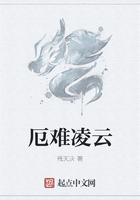"During all this time, however, Du Barry, the Duc d'Aiguillon, and the aunts-Princesses, took special care to keep themselves between her and any tenderness on the part of the husband Dauphin, and, from different motives uniting in one end, tried every means to get the object of their hatred sent back to Vienna."第一章SECTION IV.
"The Empress-mother was thoroughly aware of all that was going on. Her anxiety, not only about her daughter, but her State policy, which it may be apprehended was in her mind the stronger motive of the two, encouraged the machinations of an individual who must now appear upon the stage of action, and to whose arts may be ascribed the worst of the sufferings of Marie Antoinette.
"I allude to the Cardinal Prince de Rohan.
"At this time he was Ambassador at the Court of Vienna. The reliance the Empress placed on him favoured his criminal machinations against her daughter's reputation. He was the cause of her sending spies to watch the conduct of the Dauphine, besides a list of persons proper for her to cultivate, as well as of those it was deemed desirable for her to exclude from her confidence.
"As the Empress knew all those who, though high in office in Versailles, secretly received pensions from Vienna, she could, of course, tell, without much expense of sagacity, who were in the Austrian interest. The Dauphine was warned that she was surrounded by persons who were not her friends.
"The conduct of Maria Theresa towards her daughter, the Queen of Naples, will sufficiently explain how much the Empress must have been chagrined at the absolute indifference of Marie Antoinette to the State policy which was intended to have been served in sending her to France. A less fitting instrument for the purpose could not have been selected by the mother. Marie Antoinette had much less of the politician about her than either of her surviving sisters; and so much was she addicted to amusement, that she never even thought of entering into State affairs till forced by the King's neglect of his most essential prerogatives, and called upon by the Ministers themselves to screen them from responsibility. Indeed, the latter cause prevailed upon her to take her seat in the Cabinet Council (though she took it with great reluctance)long before she was impelled thither by events and her consciousness of its necessity. She would often exclaim to me: 'How happy I was during the lifetime of Louis XV.! No cares to disturb my peaceful slumbers! No responsibility to agitate my mind! No fears of erring, of partiality, of injustice, to break in upon my enjoyments! All, all happiness, my dear Princess, vanishes from the bosom of a woman if she once deviate from the prescribed domestic character of her ***! Nothing was ever framed more wise than the Salique Laws, which in France and many parts of Germany exclude women from reigning, for few of us have that masculine capacity so necessary to conduct with impartiality and justice the affairs of State!'
"To this feeling of the impropriety of feminine interference in masculine duties, coupled with her attachment to France, both from principle and feeling, may be ascribed the neglect of her German connexions, which led to many mortifying reproaches, and the still more galling espionage to which she was subjected in her own palace by her mother. These are, however, so many proofs of the falsehood of the allegations by which she suffered so deeply afterwards, of having sacrificed the interests of her husband's kingdom to her predilection for her mother's empire.
"The subtle Rohan designed to turn the anxiety of Maria Theresa about the Dauphine to account, and he was also aware that the ambition of the Empress was paramount in Maria Theresa's bosom to the love for her child.
He was about to play a deep and more than double game. By increasing the mother's jealousy of the daughter, and at the same time enhancing the importance of the advantages afforded by her situation, to forward the interests of the mother, he, no doubt, hoped to get both within his power: for who can tell what wild expectation might not have animated such a mind as Rohan's at the prospect of governing not only the Court of France but that of Austria?--the Court of France, through a secret influence of his own dictation thrown around the Dauphine by the mother's alarm; and that of Austria, through a way he pointed out, in which the object that was most longed for by the mother's ambition seemed most likely to be achieved! While he endeavoured to make Maria Theresa beset her daughter with the spies I have mentioned, and which were generally of his own selection, he at the same time endeavoured to strengthen her impression of how important it was to her schemes to insure the daughter's co-operation. Conscious of the eagerness of Maria Theresa for the recovery of the rich province which Frederick the Great of Prussia had wrested from her ancient dominions, he pressed upon her credulity the assurance that the influence of which the Dauphine was capable over Louis XV., by the youthful beauty's charms acting upon the dotard's admiration, would readily induce that monarch to give such aid to Austria as must insure the restoration of what it lost. Silesia, it has been before observed, was always a topic by means of which the weak side of Maria Theresa could be attacked with success. There is generally some peculiar frailty in the ambitious, through which the artful can throw them off their guard. The weak and tyrannical Philip II., whenever the recovery of Holland and the Low Countries was proposed to him, was always ready to rush headlong into any scheme for its accomplishment; the bloody Queen Mary, his wife, declared that at her death the loss of Calais would be found engraven on her heart; and to Maria Theresa, Silesia was the Holland and the Calais for which her wounded pride was thirsting.















